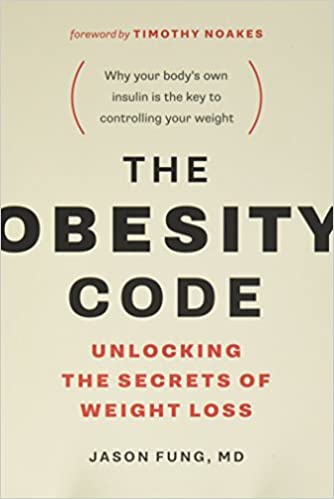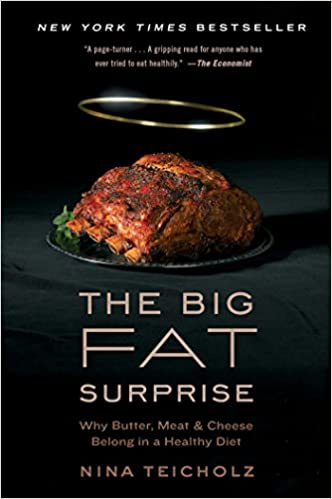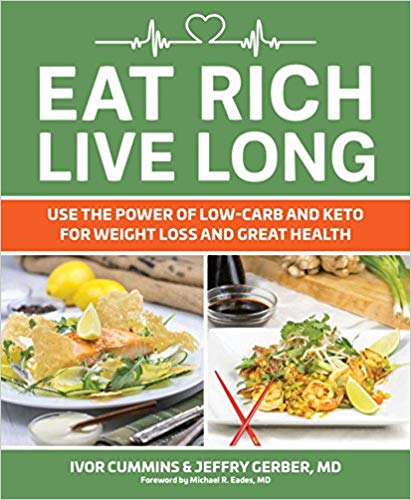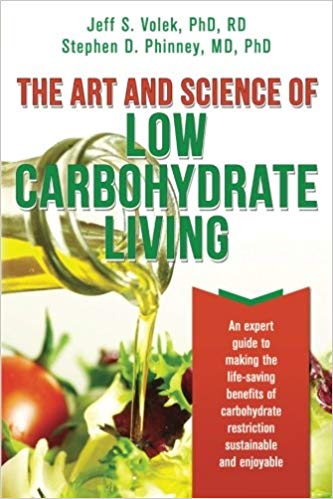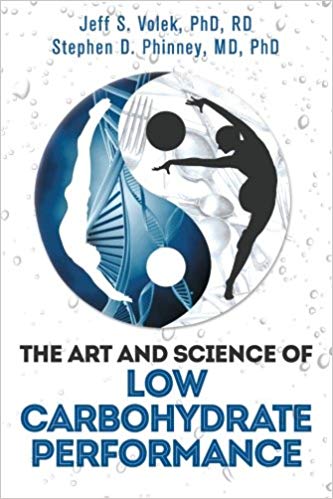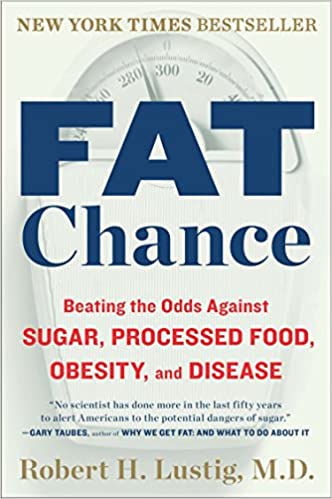Book Recommendations
All of the recommended books are well-researched and based on tons of scientific evidence and still manage to be understandable and accessible for everyone.
They’ll provide you with in-depth knowledge about how keto and low carb diets work and in turn with motivation to make this diet a lifestyle.
This site contains affiliate links. We receive a small commission for purchases made through these links. Thank you for your support! (Full disclosure)
The Obesity Code
In his book “The Obesity Code” he explains beautifully why conventional diets that operate on the paradigm “eat less, move more” fail most of the time, and what truly matters when we want to lose weight: our hormones.
Fung manages to explain the inner workings of our body and how a few key hormones like insulin and leptin can make or break our weight loss attempts, without getting unnecessarily complicated.
If you want to understand why all of your prior weight loss attempts have failed and what you can do about it – this book is for you.
The Big Fat Surprise
It answers questions like where our belief comes from that a high-carb, low-fat diet, recommended by officials since the late 70s, is the healthiest diet for us humans.
Will a low-fat diet really protect against heart disease, diabetes, and obesity by avoiding “disease-causing” saturated fats?
How many of our modern guidelines like “eat a lot of whole-grain bread” and “avoid eggs because of their cholesterol” is really based on good science and how many of them are borderline fiction?
This well-researched book answers all of these questions elegantly.
If the fear of saturated fats and cholesterol is the only thing keeping you from adopting a low carb or keto diet, this book will probably ease your mind.
Eat Rich, Live Long
Biochemistry, tons of scientific evidence, and logic are only some of the basic principles that guide this book.
The authors Ivor Cummins and Dr. Jeffry Gerber explain in detail how and why low carb and keto diets work and why they are our best bet to stop most of our modern diseases.
Worried about being overweight, getting heart disease, or having “high cholesterol”?
After reading this book you’ll have a deep understanding of what causes these modern diseases and how you will be able to fight and win against seemingly bad odds.
The Art and Science of Low Carbohydrate Living
Some of the most-cited studies in regards to low carb diets and their effects on physical performance and general health have been conducted by these two researchers.
So it’s probably fair to say that these men know what they’re talking about when it comes to low carb and keto diets.
This book bundles up their combined knowledge and expertise and is probably the closest thing to a “low carb bible” we have to date.
It’s perfect for anyone who wants to acquire deep knowledge about keto and low carb diets.
The Art and Science of Low Carbohydrate Performance
Dr. Jeff Volek & Dr. Stephen Phinney, who actually conducted some of the most well-known studies in this field, debunk the myth that low carb diets will always negatively impact physical performance.
In fact, they stress that living low carb and being a high-performance athlete is not only possible but that there are athletes that can actually benefit immensely from it.
While the principles in this book are generally applicable to all types of physical performance, endurance athletes will probably benefit the most from reading this book.
Fat Chance
Dr. Robert Lustig is a practicing pediatrician specializing in neuroendocrinological diseases and is fighting at the front of our war against obesity in those of us who are least to blame – children and teenagers.
Lustig writes about the surge of obese 6-month-olds and children who, due to hormonal disorders, gain weight even though they eat less than 500 kcal daily.
In his book, he proves two major concepts which are important to fight this epidemic:
1. A calorie is not a calorie because there are certain types of calories that are fundamentally more harmful than others.
2. The calories from sugar are particularly harmful and are responsible for much of our current health and weight problems.

